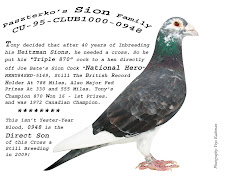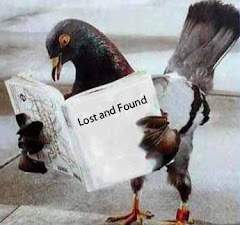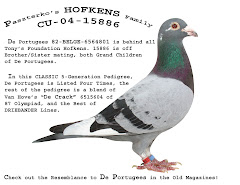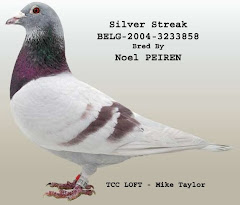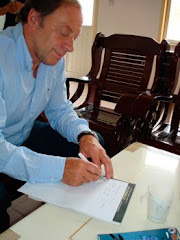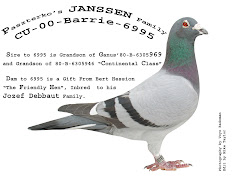Otago Daily Times
Jasmine Netzler-Iose
July 2, 2009
Brian Christian, of Timaru, has had a fascination for pigeons since he was a young boy.
In 1976, when he was old enough to own land, he built a loft and raced pigeons as a hobby.
Now, 33 years later, he continues to be fascinated with birds and, in particular, pigeons' homing ability.
Mr Christian said that kept him passionate about the sport.
Racing pigeons were trained when they were four or five months old, he said.
The pigeons were taught how to fly in a straight line instead of in circles.
The pigeons eventually learnt how to increase their flying distances, he said.
The pigeons were driven or freighted to the start of races and then they were liberated.
Once the birds were a week old, a metal ring was placed around one of their legs.
The ring recorded the date the pigeon hatched and the name of the club it belonged to.
The ring stayed on the pigeon's leg for life.
But before a race, a rubber ring was placed on the pigeon's other leg, he said.
Once the bird arrived home from a race, the rubber ring was removed by the bird's owner and placed into a pre-set clocking machine, identifying the time it landed.
Mr Christian believed it was this method of clocking in the birds that prompted many people to leave before the races were over.
Mr Christian, who is the secretary of the South Canterbury Pigeon Flying Club (SCPFC), said the club was always keen to recruit new members.
‘‘It's a sport very big overseas and in the bigger centres around New Zealand, but in Timaru we are struggling for members at the moment,'' he said.
The SCPFC was established in the 1930s, he said.
Back then, the club had many members, right up to the 1970s when there were more than 16.
Today the club continued, but with only 10 members.
‘‘It's not an expensive sport to be a part of but this depends on the number of birds in your loft,'' he said.
Mr Christian said it was not the cost of raising pigeons that was the problem but the fact pigeon racing was time consuming.
''This is why the club is struggling with members.''
Often during races people left before the birds returned home, he said.
He said many people continued to enter their birds in the young birds' races because they were less time-consuming, but the club was looking at a new method of clocking in the birds.
Mr Christian said the club was seeking funds to buy an Electronic Timing System which would allow pigeon owners to be elsewhere while the machine automatically clocked the birds in at the end of a race.
The young birds' racing season, involving birds aged six months to a year, is from March to June.
After turning one, the birds are eligible for old bird racing competitions, which take place in September and December.
The SCPFC's longest race was 1000km from the East Cape in the North Island to Timaru, Mr Christian said.
Anyone interested in joining the club can contact Gary King on (03) 688-3946 or Mr Christian on (03) 686-1819 or 027 600-5572.
Read more ...







